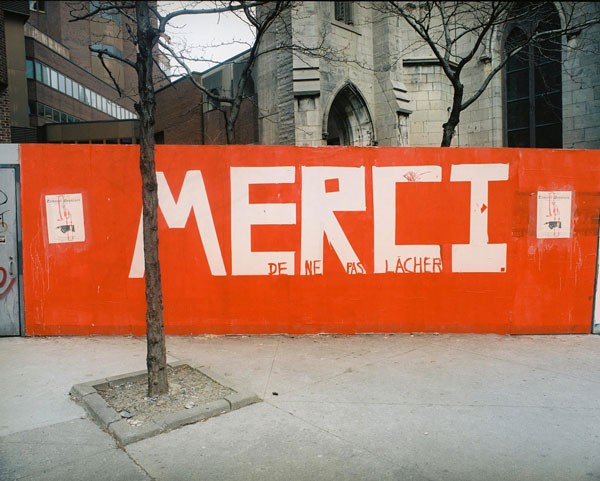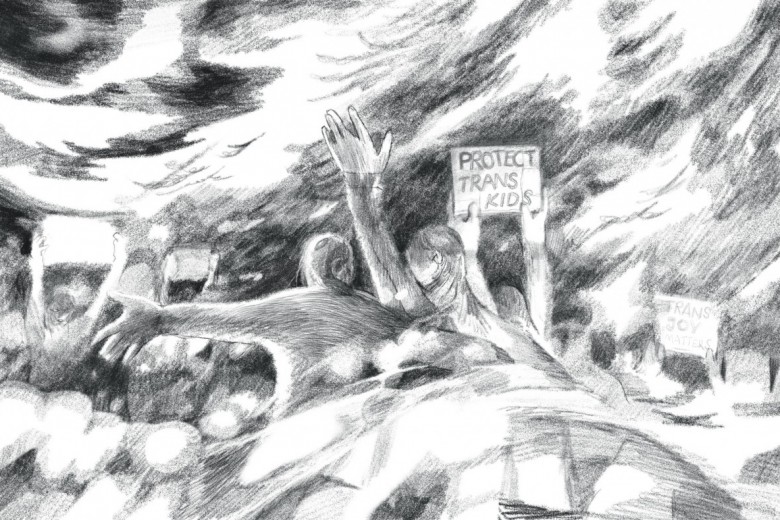
“…Speak red
We speak of education and social justice
We speak of le rapport Parent
and of la Révolution tranquille (the Quiet Revolution)
the struggles of our predecessors
for the achievements now being swept away
We speak of the failures of our government
we are a generation sacrificed
but hungry for knowledge
and a more just society
where education is no luxury
and when you really speak red
when you get down in the streets
To speak of your ideals
and speak of equity of opportunity
and the Québec you would like to be yours
a little louder then, speak red
raise your second-class citizen’s voice
They’re a little hard of hearing
and live a little too close to the management
and hear nothing but our breath from their ivory tower…
we speak the language of our generation
as in England as in Colombia
We express our anger clearly
a red square bared in our teeth
you you speak loudly you speak return to order you speak repression
Speak red
it’s a universal language
we are born to understand it
in spite of your tear gas
and in spite of your clubs
Speak red…’
Excerpts from Catherine Côté-Ostiguy’s poem “Speak red,” translated by Amy M.
The tenacity and vibrancy of the Quebec student uprising is delivering a wake-up call to the left across the country.
On the dark side, in response to the success of the mass movement, we have seen draconian curtailments of civil liberties and the largest mass arrests in Canadian history, with over 3,000 people incarcerated and counting. This is the equivalent of three G20s, or seven October Crises. Police have beaten three young people into comas, two people have lost their vision, and countless others have been traumatized by police brutality.
But in counter-point to this repression, we have also borne witness to innumerable examples of courage, joy, creativity, and a staggering sense of community. The resurgence of a vibrant social movement has had a contagious effect, with people banging pots and pans in loud solidarity marches that have rippled across the country, and the world.
The risks people have been willing to take are directly correlated to how democratically students have structured their decision making bodies. In their article, “Spread the Red Square Everywhere,” Alan Sears and Xavier Lafrance explore the importance of building democratic student unionism across the land, and the broader implications for movements fighting austerity.
The neoliberal tendency to regard education as a private commodity delivered to customers is reflected in the degree of vitriolic anti-strike rhetoric bleated out by corporate media. Students are castigated for refusing to passively receive their education, and their political engagement has been confined to placidly accepting the dictums of the government between elections.
Such ideologies ignore the radical, emancipatory potential of education as explored in Tyler McCreary’s interview with popular educator Anne Doherty, who notes, “Nothing emphasizes the need for popular education more than the concerted conservative attack on communities today.”
The effort of people to reclaim education in all spheres is one that must be spread. As Franz Fanon once said, “Every generation must, out of relative obscurity, discover its mission and either fulfill it or betray it.”






